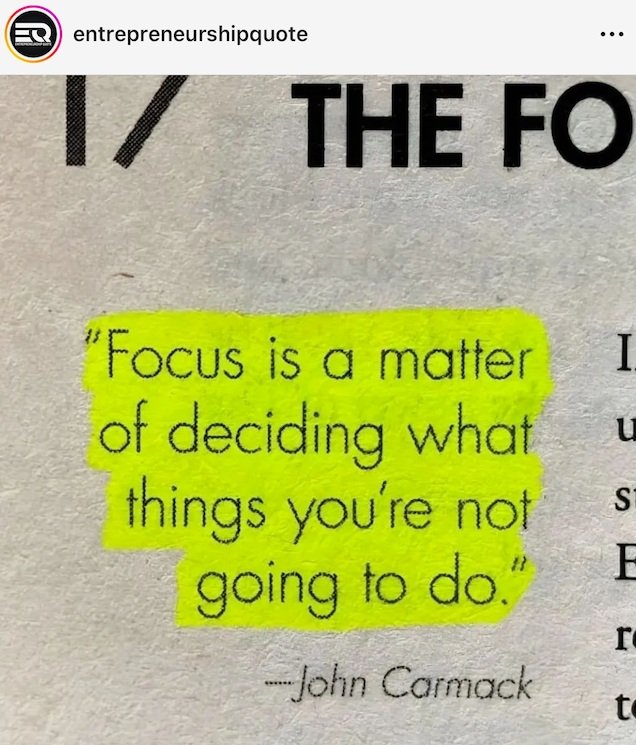Comfortable in the Discomfort
“When you can’t control what’s happening, challenge yourself to control the way you respond to what’s happening. That’s where your power is.”
As a leader, it's essential to learn how to navigate changes. Change is a constant in both our personal and professional lives, and how we handle it can either push us towards our goals or hold us back.
As we take on leadership roles, we also have the opportunity to help others understand and navigate changes effectively.
As the world continues to evolve, here are some tips and reminders to help you navigate change:
Be present: Leadership requires being present and engaged with your team, especially during times of uncertainty or change. Your time and presence as a leader are valuable, so spend time with your team and be confident in your role. Don't allow a lack of information or clarity to distance you from your team. Instead, lean into the discomfort, work alongside your team, and help them navigate and process the unknown. By being present and engaged, you can build trust, foster collaboration, and support your team through challenging times.
Focus on what you can control: During times of change, it's essential to manage anxiety by focusing on what you can control. One helpful strategy is to make a list or visualize the things you can influence. Experiment with different techniques to find what works best for you and use them when feeling anxious or overwhelmed. This approach can help you feel more grounded and empowered during times of uncertainty.
Practice Self-care: Taking care of your mental health is crucial, especially during times of change. There are many ways to practice self-care, such as massage, meditation, journaling, spending time in nature, or visiting the beach. The key is to make these activities a priority and schedule them into your calendar. By doing so, you can ensure that you prioritize your mental health and well-being, and give yourself the necessary time and space to recharge and refocus
Look for opportunity: Amidst change, it can be challenging to recognize opportunities that lie ahead. However, it's essential to remain flexible and open-minded to new possibilities that may arise. By doing so, you can ensure that you don't miss out on what might be on the other side. Remember, change often brings new opportunities for growth and development, even if they may not be immediately apparent. With a flexible mindset, you can position yourself to take advantage of these opportunities as they arise
Create a plan: Along with focusing on what you can control, it can be helpful to play out different scenarios to ease the stress around the unknown and develop a plan. Consider the various situations that might arise and how you would navigate them. By thinking through these scenarios in a theoretical way, you can gain a sense of empowerment and preparedness. This approach can also help you feel more confident and less anxious when faced with unexpected changes. So, take some time to think through different scenarios and develop a plan of action for each.
Change can be intimidating and unsettling, and it's natural to feel scared or anxious about the unknown. However, it's essential to remember that you're not alone. Everyone experiences some form of change, and it's a constant of life. Even if it feels isolating or overwhelming, know that others are going through similar experiences. This understanding can help you feel more connected and supported, and it can also remind you that you have the strength and resilience to navigate through the changes that come your way.
One more tip:
Learn from the experience: Every experience, no matter how challenging, provides an opportunity for growth and learning. While going through change, it's essential to recognize that it will eventually pass, and you will come out on the other side. Take time to reflect on the experience and the lessons learned. This process of reflection can help build your resilience and prepare you for future changes that may arise. By adopting a mindset of growth and learning, you can turn challenging experiences into opportunities for personal development and growth.
Navigating change can be a challenge, but by adopting a growth mindset and focusing on what we can control, we can successfully navigate through even the toughest of transitions. Remember to take care of yourself and your team, and approach change with a flexible and adaptable mindset
“Keep your fears to yourself, but share your courage with others.”
Workshop: Join the waitlist for our upcoming Mastery Class: Mastering Self where we will focus on the building blocks to setting ambitious goals grounded in your values, and how creativity and powerful routines can help you achieve success. 💻
Podcast: Planet Money: Episode 700: Peanuts and Cracker Jack
Leadership & Executive Presence is a short read, but it packs a punch!
This is a short read that is packed with short lessons and tips on leadership from several sources the author interviewed.
I always find that books that include personal experiences can present leadership lessons and concepts in a more approachable way.
I recommend it the next time you are looking for a quick read that definitely introduced me to new concepts I will be trying.
P.S. Reply to this newsletter and let me know what you are reading 📚
Consider how many different pieces of content you see in any given week. See something that really resonates with you? Share it with us so we can feature it in our Social Media of the Week section!
This week’s feature is from Entrepreneurshipquote:
“Focus is a matter of deciding what things you’re not going to do.”
This quote from John Carmack reminds us to say no more and decide what we are NOT going to do, so we can focus on what we want to do.
Remember, for every yes you say no to something else. Make sure you are saying yes to what matters to you.





